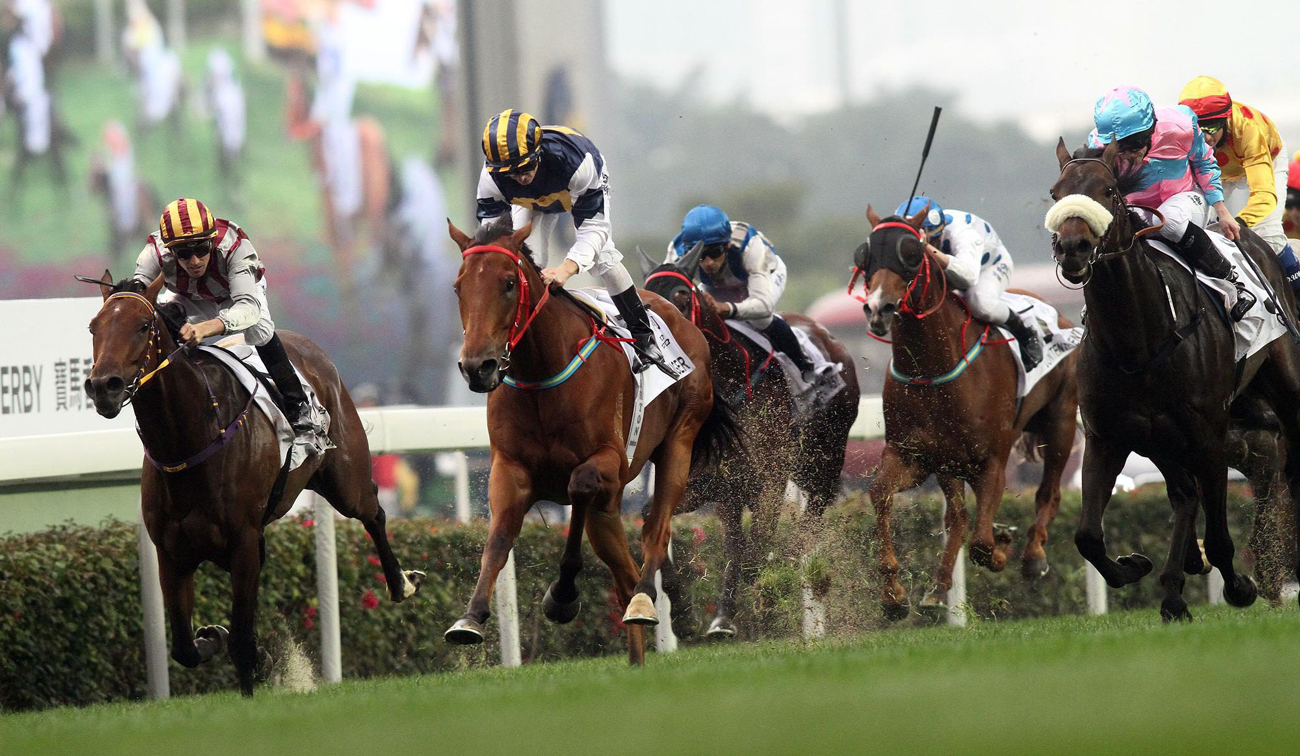The thrill of competition comes in many different forms for horse lovers and their equine friends. But whether you’re attending a small local horse show or the Grand National, you’ll need to make sure adequate insurance for you horse is in place before heading off.
Fans of equine sporting events come from all over the world to watch and participate in UK horse shows and horse racing. While these spectators all appreciate horses, they might never have considered the differences between show horses and racehorses. Read our guide to find out more about these wonderful creatures.
Remarkable racehorses
Horse racing has a long and illustrious history in the UK. It’s one of the most popular spectator sports with around 6 million race goers attending racecourses across the country every year. Here are some key points about racehorses to consider when you’re next visiting the track.
- UK racehorses are all thoroughbreds, bred for strength, speed and endurance.
- All modern thoroughbreds are descendants of just three stallions imported into England between the late 17th and early 18th century!
- Racehorses hit their peak when young. Between four and five years old for flat and between seven and 10 for jump racehorses.
- A specialised diet must be provided to meet the high energy demands of racing and training.
- Characterised as hot blooded, racehorses are high-spirited, bold and quick learners. They need careful handling at times!
- Unfortunately, racehorses can’t race forever and at some point they’ll need to go into retirement. However, this isn’t the end of the story as they shift into other sports and uses such as dressage and show jumping.
- The most successful racehorses are very valuable even after retirement. For example, Frankel, perhaps the most successful modern UK racehorse, retired to stud at just four years old!

Super show horses
Horse shows are judged exhibitions of horses and ponies held all over the UK. There are a number of competition levels, from local amateur shows to larger events such as the prestigious Horse of the Year Show.
In the UK there is a difference between horse competitions, such as dressage or eventing, and horse shows.
Horse shows provide the perfect opportunity and arena for riders and owners to exhibit their animals. Show jumping is also often featured alongside showing.
There are some key differences between show horses and racehorses including:
- Unlike their racing brethren, show horses are not specifically bred for the purpose and aren’t confined to any one specific breed of horse.
- As long as they receive regular veterinary check-ups, show horses generally don’t have as many health issues.
- Show horses tend to be older and are expected to be much easier to manage than a racehorse.
- Show horses can be groomed to a far higher standard, which might even include plaiting manes and tails.
- There are many classes a show horse can enter from veteran and coloured to riding horse, hunter and hack, but determining which one your horse is best suited to can be a challenge!
That said, there’s no reason why an ex-racehorse can’t make a perfectly good show horse. Many ex-racehorses go on to have very fulfilling careers in horse shows after leaving the track.
Whether a racehorse or a show horse, all need horse insurance to ensure you have a healthy and long life together.
Major equestrian events around the UK
The UK’s equestrian calendar is packed full of events. Fans of racing, showing, eventing or any one of the many equine disciplines have a lot to choose from. Here’s a quick guide to some of the most popular.
Cheltenham Festival – National Hunt racing
This four-day festival takes place annually in March at Cheltenham Racecourse in Gloucestershire.
Badminton Horse Trials – Eventing
An international field of horses and riders compete over three phases of competition featuring dressage, cross-country and showjumping. The five-day spectacle is a great family day out staged in the beautiful grounds of the Badminton Estate in South Gloucestershire in May.
Royal Ascot – Flat racing
With over 500 horse races over five days in June, this is Britain’s most valuable race meeting. It attracts many of the world’s finest racehorses to the meet in Berkshire.

Royal International Horse Show – Showing/Showjumping
The official horse show of the British Horse Society is held during July at the All England Jumping Course at Hickstead in West Sussex.
Horse of the Year Show – Showjumping/Showing/dressage
Also known as HOYS, the show is rich in heritage and tradition and is perhaps the world’s most famous horse show. Running in October at Birmingham’s NEC it maintains the highest standards of competition.
Olympia Horse Show – Showjumping/Showing/dressage
Held in December at London’s Olympia, the show plays host to a packed timetable of all things equestrian, welcoming over 90,000 visitors and 400 horses each year.
If you’re planning on travelling to any of these events with your horse then be sure to arrange horse trailer insurance as well as horse insurance. You don’t want to be left stranded!
Equine insurance cover
The costs of owning a racehorse or a show horse are always on the rise. But with horse insurance you can get help with any unexpected bills. After all, horses attending shows and races can easily get themselves into a scrape. Insurance cover could save the day on big expenses such as vet fees or emergency treatment.
Whatever you and your horse do for fun, make sure you’ve got the protection you need by taking out horse insurance with Equesure. Our specialist team is here to make this a simple and straightforward process. Policyholders could benefit from:
- Option 1: Vet fees covered up to £4,500 per incident but with an unlimited number of claims within the policy year
- Option 2: Vet fees covered up to £7,500 per incident up to £15,000 in the year
- Option 3: Vet fees covered up to £5000 with £2500 top up for life saving surgery
- EU cover/usage available upon referral
Call the Equesure team on 01480 220089 and get a quick quote today.
Policy benefits, features and discounts offered may very between insurance schemes or cover selected and are subject to underwriting criteria. Information contained within this article is accurate at the time of publishing but may be subject to change.





